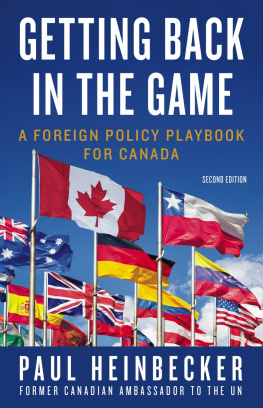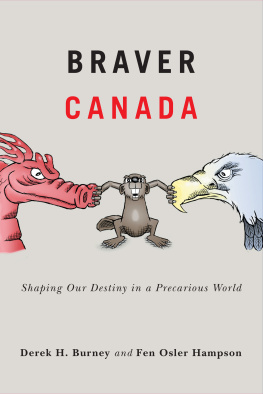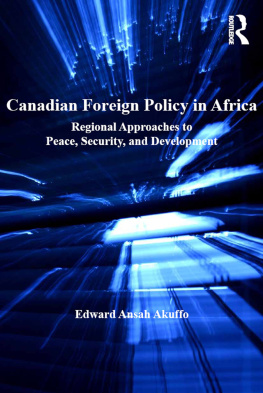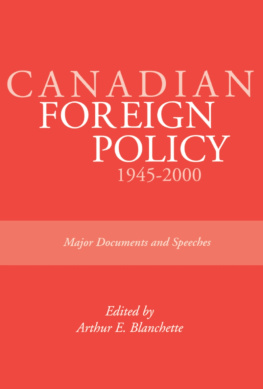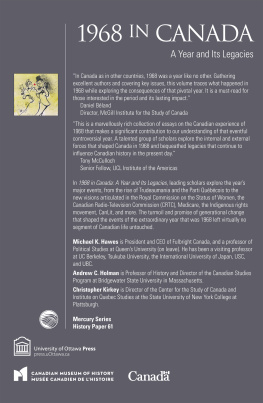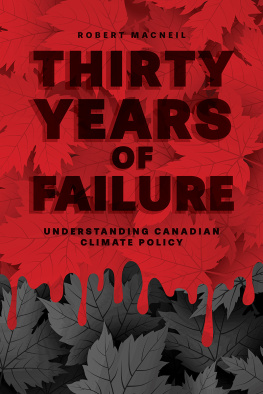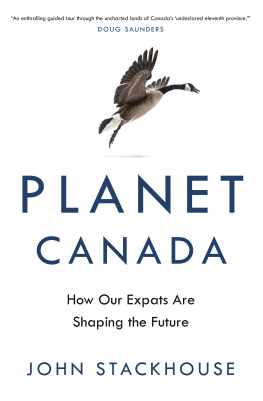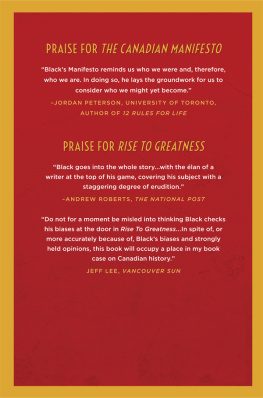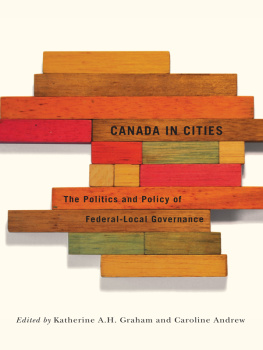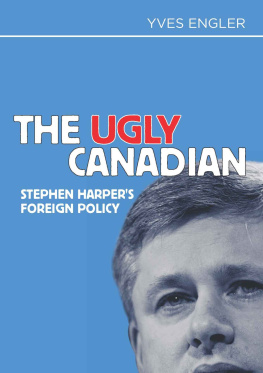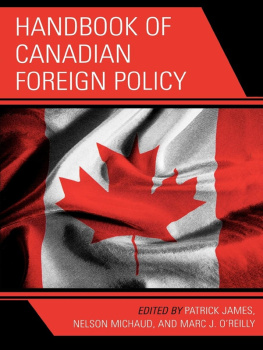PRAISE FOR GETTING BACK IN THE GAME
Getting Back in the Game crystallizes Paul Heinbeckers impressive experience and analysis at the active centre of Canadian foreign policy for more than thirty years. His book is informed, fluent, often blunt, and both realistic and optimistic about a Canada that can matter in the world, and a United Nations that is innovative, effective, and important.
The Right Honourable Joe Clark, Scholar,
Statesman, Former Prime Minister of Canada,
and Secretary of State for External Affairs, 198391
Paul Heinbecker has served a variety of prime ministers and foreign ministers as a thoughtful and clear-spoken analyst of Canadian foreign policy. In this, a veritable playbook in Canadian foreign policy past and present, he shares his insight with the Canadian public, and we will all benefit from his intelligent and provocative but always committed rendering of the active role that Canada can play in the world.
Dr. Lloyd Axworthy, President of the University of Winnipeg;
Canadas Minister of Foreign Affairs, 19962000
This is an impressive and comprehensive review of Canada and its place in the world: past, present, and future. It is a highly readable and sensible Canadian foreign-policy treatise well rooted in experience and wisdom.
John Manley, President and ceo , Canadian Council of Chief Executives;
Canadas Minister of Foreign Affairs, 200002 ;
and Deputy Prime Minister, 200203
Preface to the Second Edition
S ince publication of the first edition of Getting Back in the Game , much has happenedthe proverbially good, bad, and if not ugly, at least incalculablethat will affect Canadian foreign policy.
Under the bad heading, Canada failed to win the United Nations Security Council election in the fall of 2010 . From William Lyon Mackenzie King to Jean Chrtien, we had won the coveted seat every time we sought election, once a decade since 1948 . The loss diminished our international standing and, equally bad, deprived us of an important, albeit temporary, instrument for promoting our ideas and protecting our interests.
The reasons for the loss were clear. Stephen Harpers government had scarcely concealed its contempt for the UN , abandoned Canadas commitments on climate change, shifted Canadas aid policy focus from the relatively poorer Africa to the relatively richer Americas, gave largely uncritical support to Israels deepening occupation of the West Bank and its blockade of Gaza, and mismanaged relationships with China, Mexico, the United Arab Emirates, and others.
The loss matters because it constitutes a remarkable indictment of the Harper governments foreign policy. While the UN , with its universal membership, has a few tyrants and thug states among its adherents, the great majority of its members are free or partly free democracies, according to Freedom House, the bipartisan American monitor of international democratic progress. On the decisive ballot, Canada got just seventy-six votes.
The loss matters also because the Council, the worlds top security body, handles the big issues of peace and war. In the last decade, while the Council has sometimes been divided, it has outlawed co-operation with al Qaeda, authorized military action in Afghanistan, declined to authorize the Bush administrations attack on Iraq, ended the bloody conflict between Israel and Hezbollah, toughened sanctions on nuclear violators North Korea and Iran, and imposed a no-fly zone to protect Libyans from their psychopathic leader. All of these issues affected Canadians interests directly or indirectly. It is better to be a policymaker or, at least, shaper, inside the Council chamber than a policy taker outside it, which is why Japan, Germany, India, and Brazil seek election to the Council as often as possible and why they campaign persistently for permanent status.
Among the potentially good developments for Canadian foreign policy was the election of a majority government that creates the opportunity to reset Canadian foreign policy. Prime Minister Harper, who is more comfortable in his international role than he was as a rookie in 2006 and who has the political capital to do more than simply be prime minister, has quietly authorized an internal re-examination of Canadas goals abroad.
Potentially good, as well, is the appointment of John Baird as foreign minister. Although his international experience is scant and not especially happy, e.g., on climate change and on air transport relations with the United Arab Emirates, he is a strong personality and is trusted by the prime minister. He has his own political standing and is therefore more capable than many of his predecessors of resisting poaching by cabinet colleagues with their particular agendas, and can bring needed coherence to Canadian policy. As Lester Pearson, Joe Clark, John Manley, and Lloyd Axworthy, among others, have shown, strong foreign ministers can make a significant difference. Baird has made a promising start, especially on China, Libya, and Mexico. What is not clear is what Baird himself thinks about foreign policy and how far he is welcome to make needed changes.
The government has an opportunity to recoup Canadas standing if it suppresses the likely strong impulse to keep on doing what has worked for it politically, i.e., privileging communications over substance, tailoring foreign policy to diaspora politics, lying low on climate change, and disparaging the UN . If Canadian foreign policy continues to be marked by the pinched vision, shrunken ambition, and political cynicism masquerading as principle and purpose of the first Harper administrations, it will only prove the H.L. Mencken adage that in a democracy, people get the government they deserve, and usually good and hard!
Regrettably, the early signs are not all promising. At the G 8 summit in May 2011 , the prime minister parted company with his partners, including the United States, and endorsed the Likud governments position on Israels borders. In the 2011 Speech from the Throne, Harper promised to stand up for Canadian farmers and industries by defending supply management, the protectionist agricultural policy that profits Ontario and Quebec farmers, including separatists, at other Canadians expense and burdens Canadas negotiations with the European Union and even excludes Canada from the Trans-Pacific Strategic Economic Partnership, potentially the most important transpacific economic group. Further, the government has signalled that it will slow the growth of the defence budget, freeze aid spending at current levels, cut back on diplomacy, and subject all departments to strategic spending cuts. None of this is a prescription for a more effective foreign policy.
Currently incalculable but obviously crucial are the breathtaking rise of China, India, Brazil, and Mexico, the political disarray of the United States and the fiscal crisis in Europe, the disappearance of existential threats to Canada and the diminishing need for alliances, the spreading scourge of illegal drugs and crime, the Arab Awakening, and the acceleration of the digital age that is transforming the context of foreign policy and the conduct of diplomacy.

